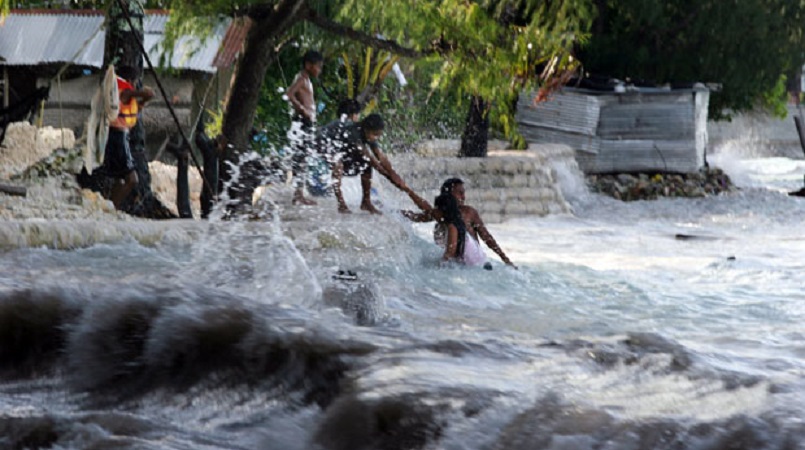
Small Pacific island states have vowed to push for a commitment to limit the rise in average global temperatures to 1.5 degrees, despite the opposition of Australia and New Zealand at Thursday's Pacific Islands Forum leaders' retreat.
Tony Abbott arrived in Port Moresby on Wednesday night after climate change dominated pre-retreat discussion among the other 15 leaders, with Papua New Guinea Prime Minister Peter O'Neill insisting there was strong support for the forum to have a “single position” on the issue.
O'Neill said the views already expressed in two pre-forum declarations supporting the 1.5 per cent target, rather than the 2 per cent preferred by Australia and New Zealand, would be “very seriously considered” at the retreat.
He also said there was no indication that Australia and New Zealand would "opt out" of any declaration that embraced the more ambitious target.
In a speech opening the Forum, O'Neill declared the leaders had to act on behalf of small Pacific states whose survival was threatened by global warming.
“The people who are at the greatest risk did not cause climate change, but they suffer because of it. Right now communities across the region live in fear with each high tide that is coming in or when a storm is approaching,” he said.
“Many of these communities are isolated, so that when sea water enters their homes and covers their crops, we do not see them on the international news because they continue to suffer in silence.”
Arriving at the summit on Wednesday, New Zealand Prime Minister John Key made it clear that he would not be supporting the call from smaller island states for a commitment to limit the global temperature rise to 1.5 degrees above pre-industrial levels.
Key strongly defended his country's performance on climate change, but said it would have to reduce its number of animals to meet the commitment, which would simply result in other countries having bigger herds, with no impact on climate change.
“We're very serious about what we are doing in New Zealand,” he said, citing the country's expansion of renewable energy and commitment to an emissions trading scheme and research on climate change.
“Realistically, for an answer to climate change to be found, we need international consensus and ultimately for the big emitters to make sure they step up to the plate,” he said.
